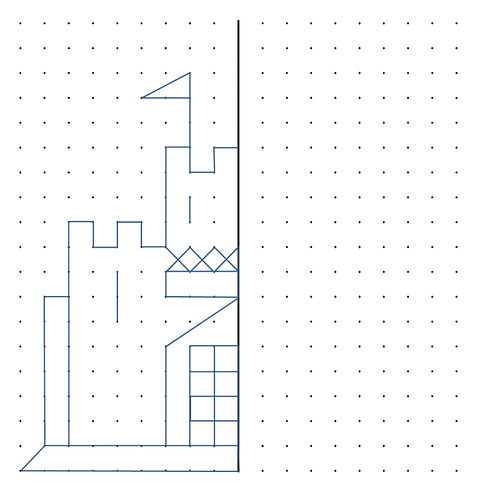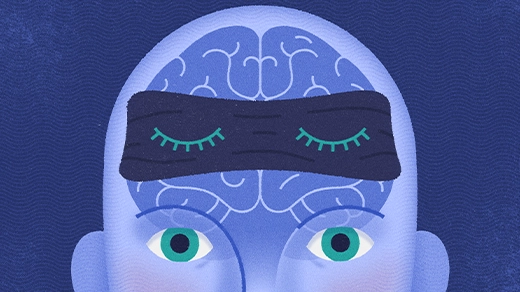With apologies for the tangent: this is a phenomenon (or more accurately, a spectrum) known as aphantasia, and I suspect it’s somewhat more common than people realize. In fact, I didn’t realize that this was not the normal state of affairs until I first encountered the word for it; I’d always assumed that “picturing” something in your mind was simply a metaphorical fancy. 
I wouldn’t be surprised to learn that there’s some genetic component to where one falls on the spectrum… though both my parents claim to have vivid visual memories, while I have, at best, the concept of an apple.
Ironically, this made my own brief dabblings with AI images rather magical: it was the first time I’d seen concepts that had only ever existed as words in my head.
And, to keep this vaguely on-topic, I share your preference for simple, “clean” images — particularly when they may be displayed only very briefly.
 ), I can share driving directions with my son easily (“go 2.3 miles, turn left on Cedar St, then take your third right onto Oak”) but those directions don’t work for my wife and daughter, whose directions only occasionally work for me (“go down past that big yellow farmhouse, then turn across from the house that used to have the llamas. When you hit the rock that looks a bit like a big dog, take your next right.”)
), I can share driving directions with my son easily (“go 2.3 miles, turn left on Cedar St, then take your third right onto Oak”) but those directions don’t work for my wife and daughter, whose directions only occasionally work for me (“go down past that big yellow farmhouse, then turn across from the house that used to have the llamas. When you hit the rock that looks a bit like a big dog, take your next right.”)
